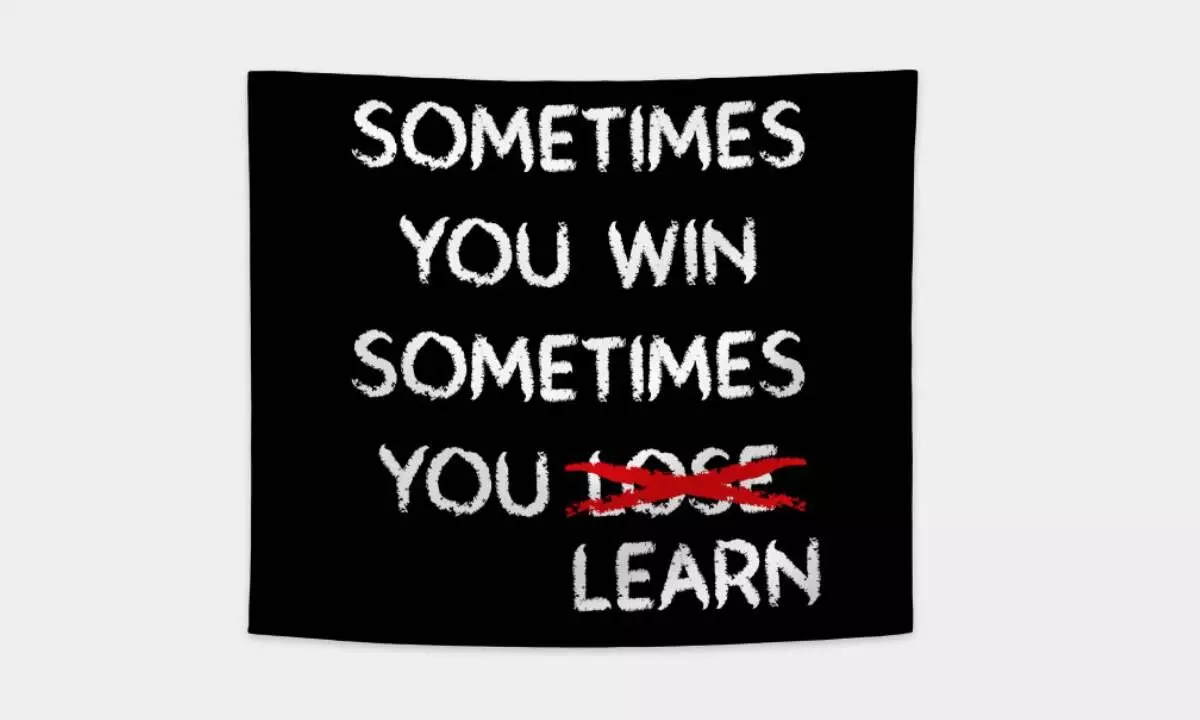Playing to ‘learn’ helps one to come out of the win-lose mindset
‘Only a win matters’ dogma is breeding an unhealthy culture of competition
image for illustrative purpose

Binaries continue to be exceedingly popular in public imagination. The contrasts in light and darkness, success and failure, good and evil and the likes, structure our everyday thinking and discourse. However, a lot of nuances are left out in compulsorily thinking of life in terms of binaries. One such binary, which particularly limits our imagination, is that of winning and losing, victory and defeat.
This dualism has been given too much importance culturally; winning matters as losing amounts to nothing. Yet, it fails to look at the caveats around wins, the silver lining around losses and everything between these two poles. In such a case, one might ask if there is something better than playing to win or lose. The answer can be playing to learn, outside all narrow definitions of winning and losing.
Playing to learn is a mature, capacious and pragmatic approach that promotes perseverance. It takes into consideration the innumerable nuances, which lie between winning and losing and makes learning a compulsory experience no matter where we lie on the spectrum of wins and losses. For example, from the learning perspective, when we succeed, we look at it with a critical lens, understanding the many factors that contributed to our success and that it will not sustain itself, unless we keep putting in renewed efforts each time. Winning, under such an approach, will not lead to arrogance or complacency but wisdom. Similarly, the usual feelings of disenchantment associated with losses can be avoided if we are playing to learn, because we would be looking at the reasons behind failure, possibilities of doing better and knowing that it is not the ultimate verdict on one’s capabilities.
In fact, letting go of the polar opposition of winning and losing can contribute to personal well-being and a better society as well.
Kenneth Barish, in a piece which analyzes the responses of children upon winning and losing, writes in ‘Psychology Today’, “Everyone who plays games with children quickly learns a first lesson: how important it is for them to win. For most children (and, to be honest, for many adults) these games matter. He does not want to win; he needs to win. Winning, by whatever means, evokes in young children a feeling of pride; losing evokes a feeling of failure and shame. […] Many children who play in this way, both boys and girls, are temperamentally impulsive and strong willed. It has therefore been more difficult for them to learn to control their expressions of frustration and disappointment. Other children feel, in some way, defeated, often by difficulties in learning. Winning and boasting offer them temporary relief from feelings of failure and envy.”
As it states, the binary of winning and losing has fostered a mandatory and unhealthy culture of competition in this world. Winning is a means to avoid everything losing entails, and therefore no win is truly a genuine win. Losing, at the same time, can propel a person to a rather dark spot of anguish and self-loathing. Learning and taking away precious experiences from our endeavours is obviously not a priority under this approach, which reduces our complex lived experiences to ‘either/or’ quests. We cannot be tethered to such a heedless pursuit that only knows highs and lows and does not appreciate our journeys. Therefore, we must get over this parochial way of life.
We must tell ourselves that each day is an opportunity to make our lives better and our legacies grander. When we lose, we gain invaluable insights into what did not work, which makes us better prepared for potential victories. When we win, we can humbly look at how we won and keep up that spirit for the future. In both cases, learning keeps us engaged in productive and meaningful projects. Needless to say, it keeps us away from extreme and unhealthy emotions, which distract us from what is relevant.
To sum up, learning builds strength for life, which is a long-term reward, that stays resilient in the face of the short-term euphoria of a triumph or the disappointment of a debacle. So, go ahead, own the life you live and learn limitlessly!
(The author is Founder Upsurge Global, Venture Partner Silverneedle Ventures and Adjunct Professor EThames College)

